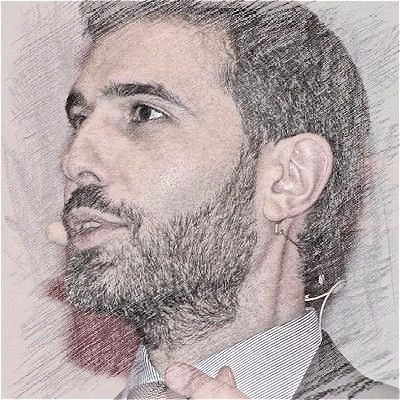Councilbox has developed software that enables formal and legally binding corporate meetings through video streaming from anywhere in the world and from multiple devices. This saves 80% of the cost of meetings that typically require the physical presence of company directors, shareholders and attorneys who may be based in different cities or countries.
According to the new Capital Companies Act in Spain, companies are required to organize shareholder and board meetings once every quarter. Thanks to blockchain technology, Councilbox’s distributed ledger technology (DLT) authorizes and corroborates legal content and electronic votes, allowing meetings to be run remotely and with full legal validity.
Councilbox grew its revenue 10 times during the year of 2017, proving that the ecosystem is rich in business opportunities. The company calculated that firms were paying around €49.80 per attendee for a two-hour meeting.
Víctor López García, CEO and co-founder of Councilbox, said: "Obviously, savings are greater when considering larger organizations with international partners and advisors. These companies can allocate an annual budget of €200,000.”
In 2017, only 40% of potential US buyers invested in legal tech tools. In that same year, the legal tech market in US spent US$366mon collaboration tools – just 18% of total legal tech annual spending. The potential market for such tools is estimated at US$6.5bn.
Decoding targeted markets
Councilbox’s business model is a SaaS subscription one, with a price range of €20 to €150 monthly, depending on the support needed. The company initially targeted its own national market of the approximately 3m companies that could potentially use its solutions. To date, Councilbox has taken on 300 clients such as Booking Spain, The International Olympic Committee, The Spanish Athletic Federation and some large law firms.
The initial strategy has been to narrow the target market by selecting medium-to-large sized companies with employees distributed around the country and with a sufficient level of technology to allow the necessary system integrations.
To further grow within the Spanish market, 95% of whose companies have fewer than 10 employees, Councilbox has started to integrate new features into its software that cater to SMEs and startups.
Councilbox’s platform is part of Red Alastria, a non-profit blockchain ecosystem of over 70 Spanish companies such as BBVA, Santander, Telefonica, and several Spanish universities.
It owns one of the eight nodes provided by the Alastria Blockchain Ecosystem. The remaining nodes belong to big players like Caixabank, Indra, Everis and Bolsa y Mercado (BME).
Lopéz said: "We use API RESTful to allow seamless integration of third-party apps within the Alastria platform. This works if new evidence has to be added or if third parties have to validate.”
The Alastria network enables a smart contract function, assignment of digital ID, data security, and it allows information-flow standards across institutions that are compliant with European regulations. The platform works directly on the Ethereum blockchain.
The ecosystem was founded by industry professionals such as notaries and lawyers to ensure the security and veracity of information. It aims to establish a common collaborative platform that boosts digital penetration and growth.
Cuatrecasas acceleration
Councilbox was founded in Galicia in 2015. Both co-founders had previous entrepreneurial experience. López was at AVA Technology Solutions, and the other co-founder and COO Agustin Tourón Gil at Streaming Galicia, an events video streaming platform.
XesGalicia and the Galician VC fund Vigo Activo initially backed Councilbox’s idea with the funding needed to kick off the project. Tourón and López used the capital to develop the first MVP and to work on technology iterations.
In June 2016, the company joined Cuatrecasas Acelera, the first edition of vertical acceleration for the legal tech ecosystem promoted by Cuatrecasas, one of the biggest law firms in the Iberian Peninsula. Headquartered in the tech hub of 22@ district in Barcelona, the program lasted six months, during which participating startups were mentored with access to the Telefonica Open Future infrastructure.
During the acceleration phase, Councilbox managed to run first pilots with clients who validated the company’s solutions and business model. With sufficient metrics and KPIs to prove project traction and model validation, Councilbox officially launched the product on the market at the beginning of 2017 and, in parallel, opened a new funding round to scale up the business.
The capital was contributed by a group of unnamed private investors and used to expand the business in its new markets. In the last quarter of 2017, the company had facilitated over 5,000 meetings across Spain and Portugal.
The company is currently focusing on generating more leads and new clients in Portugal, England and Singapore while making the necessary product adaptations to be compliant with different European laws and standards. This will allow further expansion into new markets.
Given the high scalability of the platform and the versatility of blockchain technology, the company is also looking to deploy and adapt its solutions in different industry verticals. These include the traceability of food supply chains to guarantee quality standards, and the detection online of counterfeited luxury goods.














